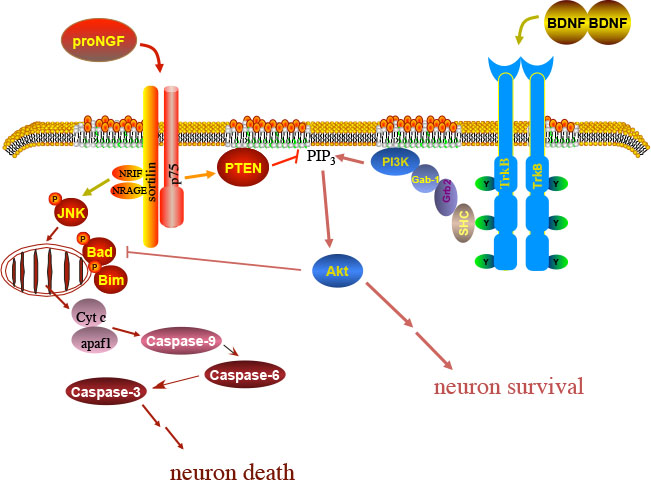Interaction of Survival and Death Signaling
Neurotrophins bind to two different types of receptors, the Trk family of receptor tyrosine kinases, which promote neuronal survival and axonal growth, and the p75NTR, which can promote cell death and axonal degeneration. We are interested in understanding how these pathways interact, especially when there may conflicting signals for survival and death, or growth and degeneration, as can happen after injury in the brain. Additionally, since neurons have long, complex axonal processes, we are interested in understanding how different signals from distinct parts of a neurons get integrated to modulate the neuronal response.
